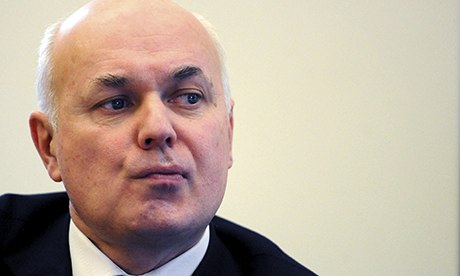http://www.theguardian.com/environment/2013/nov/19/energy-efficiency-jobs
Scrapping programme will result in massive job losses and huge costs in lost savings, green association warns
Scrapping the government’s commitment to key measures to bring energy efficiency improvements to homes would cost tens of thousands of future UK jobs, research obtained by the Guardian has shown.
The energy companies obligation (Eco) is likely to provide 46,000 jobs within the next two years, according to the Association for the Conservation of Energy, in an analysis using the government’s own estimates of employment.
Most of those jobs – the majority of which are “blue collar” jobs in installing insulation, new boilers and construction projects – are now potentially at risk following government backtracking.
If the scheme were abandoned, as some have called for, at least 30,000 of these jobs would be at risk.
Scaling back the scheme, rather than abandoning it, would also result in significant job losses: halving the main requirements would cut employment by 10,000 people in the next year and an additional potential 7,500 future jobs would be foregone. Removing one of the main components of the scheme, which is aimed at people on low incomes, would see 28,000 jobs lost.
Andrew Warren, director of the Association for the Conservation of Energy, said: “The vast majority of these jobs would be blue collared, and often semi-skilled. They would frequently be not even in SMEs, but in micro-businesses, precisely the companies that the government is relying upon to ensure economic recovery. Hammering these home improvement schemes makes no sense.”
The future of the Eco scheme – which is designed to help people on low-incomes and those with hard-to-treat homes requiring expensive measures such as solid wall insulation – has been thrown into doubt after David Cameron pledged to “roll back” the green measures that are added to consumer energy bills.
Eco was targeted after government legal experts pointed out that the UK has obligations under EU law to generate about 15% of energy from renewable sources by 2020, and that any moves to scrap the current subsidy regime could lead to the coalition being sued by renewable energy companies. Eco is currently paid for out of additions to energy bills, and one of the options that some energy company bosses have espoused is to move it into general taxation.
EDF came under fire for “blackmailing” the government over the scheme when it announced it would raise its prices by 3.9% – significantly less than rivals – but saying that the rise would be increased unless Eco was scrapped.
But Eco could help hundreds of thousands of people out of fuel poverty, according to the Local Government Association. It calculates that Eco could deliver £2.5bn in savings on energy bills for low-income and vulnerable households, but at present only about £1bn is being realised, because of foot-dragging by the energy companies in carrying out Eco installations in homes.
The estimates of likely job losses follow the revelation that energy companies have netted £1bn from consumer bills to pay for Eco, while spending only about £400m on the scheme. On one of the three key components of the scheme, designed to help the most vulnerable people, Ofgem has said energy companies have delivered only 3% of what needs to be achieved by March 2015.
…


